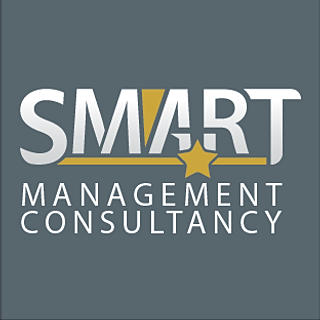Why Compliance Matters in Healthcare Operations
- Smart Management Consultancy
- Jun 10, 2025
- 3 min read
In the ethical world of healthcare, ensuring compliance is not merely a regulatory requirement; it is essential for maintaining quality, safety, and trust. Complying with healthcare regulations isn't just about avoiding fines and penalties; it's about ensuring that healthcare organizations operate smoothly and provide the best possible care to patients.
Understanding Healthcare Compliance
Healthcare compliance refers to the process by which healthcare organizations meet legal, ethical, and professional standards. These standards often stem from national laws, as well as guidelines set by accreditation organizations.

Organizations are required to adhere to various compliance mandates. For example, the regulations by the National Health Regulatory Authority, Supreme Council of Health, Supreme Council of Environment, National Labor Laws, Health & Safety Regulations and many more to count. Noncompliance can have serious legal ramifications and impact the quality of care provided.
The Importance of Compliance in Healthcare Operations
Being compliant means that healthcare organizations can operate efficiently without facing legal issues. Non-compliance not only puts a practice's reputation at stake but can also lead to exorbitant fines and lawsuits.
Statistics indicate that healthcare providers could lose fortune annually due to non-compliance. This staggering losses includes costs related to damage control, potential litigation, and loss of business. A compliant organization is also more likely to receive better patient satisfaction scores, which can equal to better reimbursement rates.

Attracting and Retaining Talent
When a healthcare organization demonstrates a commitment to compliance, it becomes more attractive to potential employees. Professionals in this field want to work for organizations that prioritize ethical standards and operational integrity.
For example, organizations that emphasize compliance create a culture of accountability. This positive culture aids in attracting top talent, as healthcare professionals prefer to work in environments aligned with their values. Moreover, reputable national and international organizations can partner with proud with organizations that show commitment to compliance.
Enhancing Patient Trust and Safety
Patient trust is fundamental to successful healthcare delivery. Compliance with regulations instills confidence among patients that they are receiving care in a safe and ethical environment.
In addition, healthcare compliance directly correlates with patient safety. Regular audits and compliance checks ensure that procedures and practices are up-to-date and follow the best standards. For instance, ensuring that medical staff is trained in the latest infection control protocols can significantly reduce healthcare-associated infections (HAIs).
Financial Stability and Better Resources
Financial stability is crucial for healthcare organizations. When compliance is prioritized, organizations can avoid costly fines. Additionally, compliant organizations may find it easier to attract funding and resources. Investors and grant-making organizations often look for assurance that funds entrusted to them are being used ethically and effectively.
Organizations can also leverage funds saved from avoiding penalties to invest in better healthcare technology and infrastructure. This, in turn, can further enhance the quality of care provided.

Achieving Risk Management Certification
Implementing robust compliance programs can help healthcare organizations pursue a risk management certification. Such certification provides a framework for identifying, assessing, and managing risks associated with healthcare operations. By becoming certified, organizations demonstrate their commitment to high-quality patient care and operational excellence.
Regular Training and Development
For compliance to be effective, ongoing training and development are essential. Healthcare regulations evolve continuously, necessitating that staff stay informed.
Regular training sessions should cover relevant topics, including updated laws, ethical standards, and best practices. Utilizing interactive training methods, such as workshops and simulation exercises, can keep staff engaged and knowledgeable about compliance regulations.
Furthermore, organizations should encourage open discussions about compliance issues. Creating a transparent environment where employees feel comfortable reporting unethical behavior will foster a culture of accountability.
The Role of Technology in Compliance
Technology plays a vital role in streamlining compliance processes in healthcare. Electronic health records (EHRs) can help maintain patient confidentiality and ensure adherence to HIPAA regulations. Additionally, compliance management software can assist in tracking current regulations, conducting audits, and reporting compliance metrics.
For instance, organizations can utilize systems that automate the compliance monitoring process, making it easier to stay informed about regulations. The integration of artificial intelligence (AI) can also flag potential compliance issues in real-time, enabling preemptive action.
Final Thoughts on Healthcare Compliance
In conclusion, compliance is far more than a regulatory tick-box exercise; it is a foundational pillar of effective healthcare operations. From enhancing patient safety to attracting top talent, the benefits of prioritizing compliance are extensive.
Healthcare organizations that embed compliance into their culture will find not only legal security but also a commitment to delivering high-quality care. As regulatory requirements continue to evolve, ongoing education, technology, and leadership commitment will be key in navigating this complex landscape.
In a world where healthcare compliance is critical, staying informed is essential. Prioritize compliance, ensure your operations smoothly, and foster trust in the healthcare ecosystem.















Comments